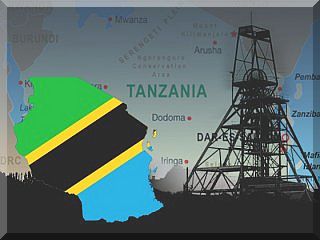EITI Pays Dividends in Tanzania

 |
Mineral Audit
Mining, therefore, is a critically important sector for Tanzania’s economic prosperity, now and in the future. There are still abundant opportunities yet to be explored and exploited. In recent years our pre-occupation has been about how to ensure that the nation, through the government, benefits equitably from mining activities.
Accountability and transparency on the part of mining operations were matters of essence. We undertook a comprehensive review of the mineral sector, in the country, where these factors were underpinned in our new Mineral Policy and the new Mining Law. You may be delighted to know that the person who chaired the Mineral Sector Review Commission, that I set up in 2007, Judge Mark Bomani is the Chairman of the Multi-Stakeholder Working Group of the Tanzania EITI chapter.
Prior to that, and, in the spirit of promoting accountability and transparency, mineral audit was introduced to enable the government monitor operations of mining companies. At the beginning this service was outsourced from abroad and, in 2007 we established the Tanzania Mineral Audit Agency manned by Tanzanian nationals. The mandate of the Agency was to monitor investments, costs of operations, and revenues of mining companies as well as payment of government taxes and loyalties.
The introduction of mineral audit facilitated availability and verification of information about the operations of mining companies in Tanzania. Before that, mining companies were the only source of information and there was nobody to ascertain the veracity of the information. As such, everything simply depended on the integrity and trustworthiness of company officials.
Under such circumstances, the danger of companies not telling the truth and the risk of our mineral resources being depleted without companies paying the proper taxes was real. There was a genuine fear that we would lose all our minerals to the investors and get very little or nothing at all in return. To date, because of the good work being done by Tanzania Mineral Audit Agency, we can confidently say that things have began to change and will continue to change for the better. There is greater transparency and accountability now, than was the case before. It has become easier these days for the government to know how much to collect in the form of taxes and loyalties from mining companies.
Implementing EITI Principles
Our membership of the EITI has complimented well the efforts we had begun. EITI has been a great inspiration, indeed. In fact, it has strengthened our hand and resolve in the quest for accountability and greater revenue transparency in the exploitation of our natural resources. Although the EITI is a new initiative in Tanzania, it is already showing positive results. It has taken our efforts a step further.
In February, 2011 Tanzania published its first EITI report detailing payments made by mining companies to the Government from the period of July 1, 2008 to June 30, 2009. The report is playing a useful role in informing the Tanzanian public about revenues generated from the extractive industries. Rightly so, its publication and release has generated public and parliamentary discussions about the role of government in revenue collection and the contribution of the mineral sector to our economy.
A number of important issues were raised in the report which the government is now following up in order to resolve them. For example, we have assigned the Controller and Auditor General (CAG) to examine the reported discrepancies in various payment transactions between mining companies and government agencies. About USD 36 million is reported to be involved in this case.
Tanzania is proud to be part of EITI global family and, to be among the countries implementing the EITI principles and values. We are committed to the EITI process because it is aligned with our policy of promoting transparency and accountability in the management and use of our natural resources. It is critical for promoting sustainable development and poverty eradication in the country.
I am confident that implementing the EITI principles and values, to the letter and spirit, will encourage compliance on the part of all stakeholders. They will all know that there are some people somewhere who are watching with very keen eyes. It will also help build trust among Tanzania’s public and reduce their scepticism about the role and contribution of the extractive sector in their socio-economic well-being.
And, if, the practise of corporate social responsibility is observed, more trust will be engendered between investors and the people living around the mining operations because both of them will be benefiting.
Certainly, implementing EITI principles and values will go a long way towards enabling countries benefit equitably from their natural resources which God generously endowed on them. It will make resources be an opportunity rather than become a curse and source of conflicts as it has happened on some mineral-rich countries in Africa.
I acknowledge and thank members of the Tanzania Multi-stakeholder Group, the International EITI Secretariat, the World Bank, the African Development Bank, Norway, Canada and the UK for their support to the Tanzania EITI process. We have come so far because of their invaluable support. I am grateful and all Tanzanians are grateful. Please, lets continue to work together.
By H.E. Jakaya Mrisho Kikwete,
President of the United Republic Of Tanzania
